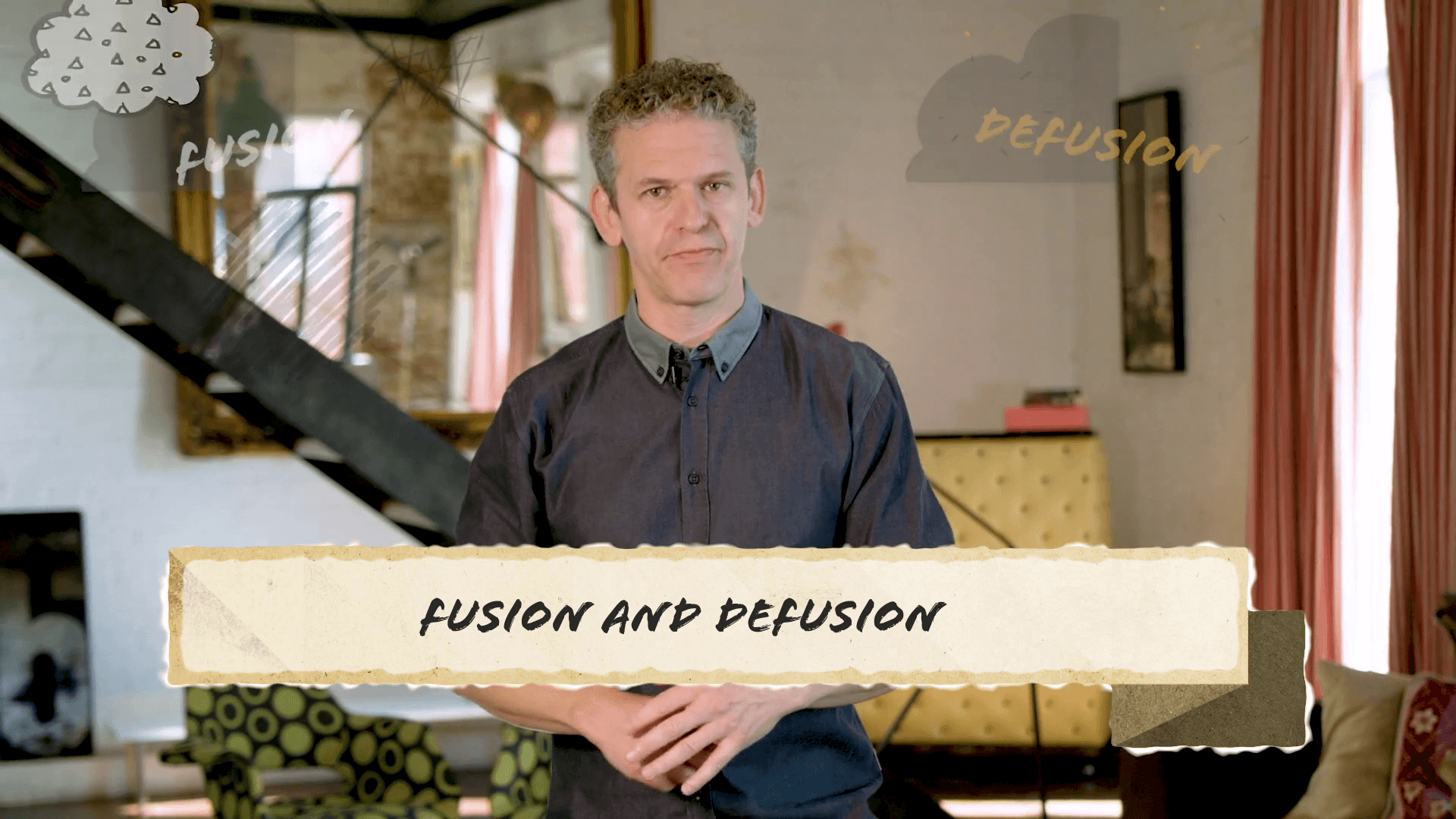
What is Fusion
 ACT for Beginners
ACT for BeginnersThis week, I am going to be presenting the entire program with this outrageous French accent, which you know makes me feel a lot sexier. It is definitely the most sexy accent in the world. But unfortunately, when I start doing it. It starts to turn into the German accent. So I think I'd better just stop trying to do accents and get on with the program. What we're going to do this week is we're going to be looking at Fusion and Defusion or as the French say fusion y defusion au revoir.
So here I am talking to the camera and my mind is racing. It's like, oh, what am I going to say? Have I got my words right? And I'm going to get it right? How many takes are they going to make me do? My anxiety levels are kind of quite high right now. I don't know if you can see my hands are quite sweaty here. Can that can the camera pick that up? It's kind of lovely. I'll get in the light there.
Just so you can see my lovely sweaty hands and there's a large part of me that just kind of wants to run away from this. You know this is me applying ACT to myself. I'm willing to make room for these anxious feelings in these sweaty hands. I'm willing to make room for this voice in my head saying you're going to screw it up. You're going to screw it up in order to do what I care about what's important to me.
You know my core value in putting this course together is helping you folks to go out and help other things. So I'm willing to have the anxiety. And I'm willing to have that voice going on in my head. Oh is my hair in place? Will they see my cosmetic surgery scars? And what would happen, though, if I kind of got completely hooked by these thoughts if I got all lost in them, then I wouldn't be able to focus and engage on what I'm doing right here, right now or if I got hooked by the thoughts that I had a few minutes ago is like, oh, let's finish filming for the day.
I've had enough. I don't to do any more than filming would stop and we wouldn't really be getting anywhere effective. So when our faults have a huge impact over our behavior in a way that is self-defeating or problematic. The technical name for that is Cognitive Fusion. Generally, we use the term fusion in ACT as shorthand for cognitive fusion and by cognition we mean, really any type of thought or thinking process. So cognition can refer to thoughts, beliefs ideas, attitudes assumptions and cognitive processes such as worrying and rumination, and you'll also often hear me talk about Fusion with thoughts and feelings and that's an important reminder that all emotions are rich in cognition.
There's no such thing as an emotion that doesn't involve cognition as an integral part of it. You know if you explore sadness or anger or guilt or shame, or you know any emotion you'll find this all sorts of cognitions that are an intimate part of that emotional experience. So you'll often hear me talk about Fusion with thoughts and feelings.